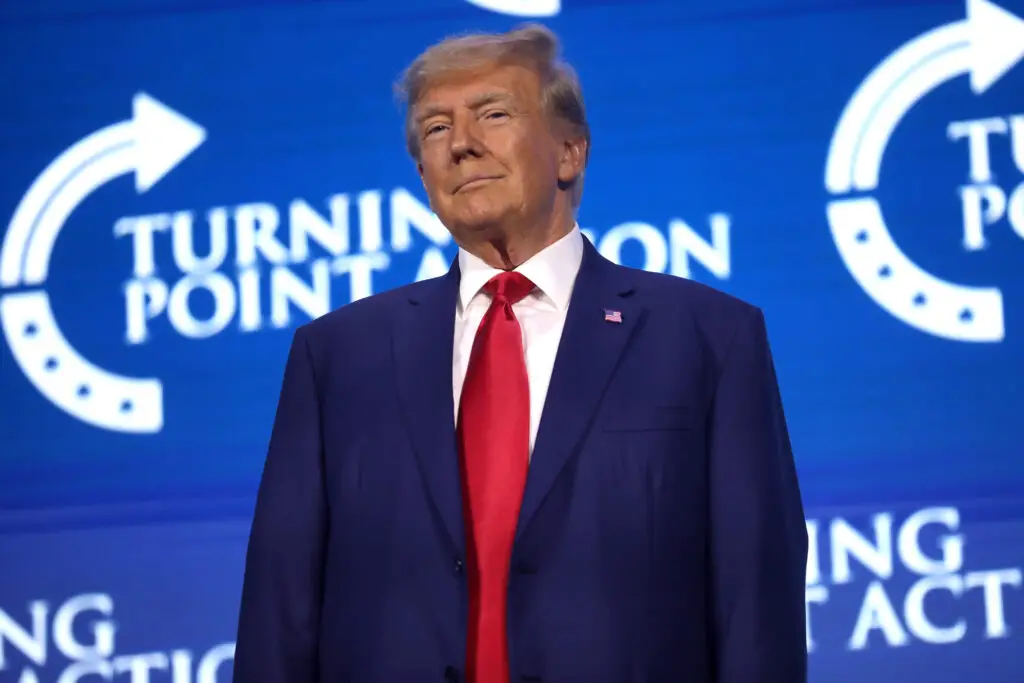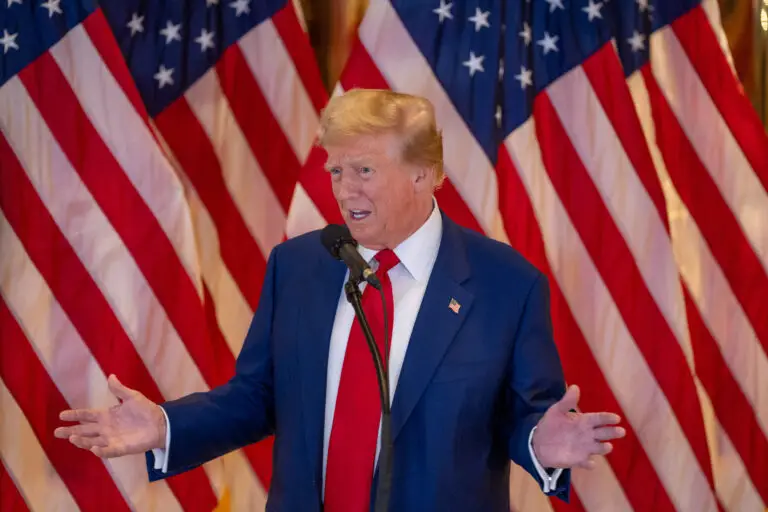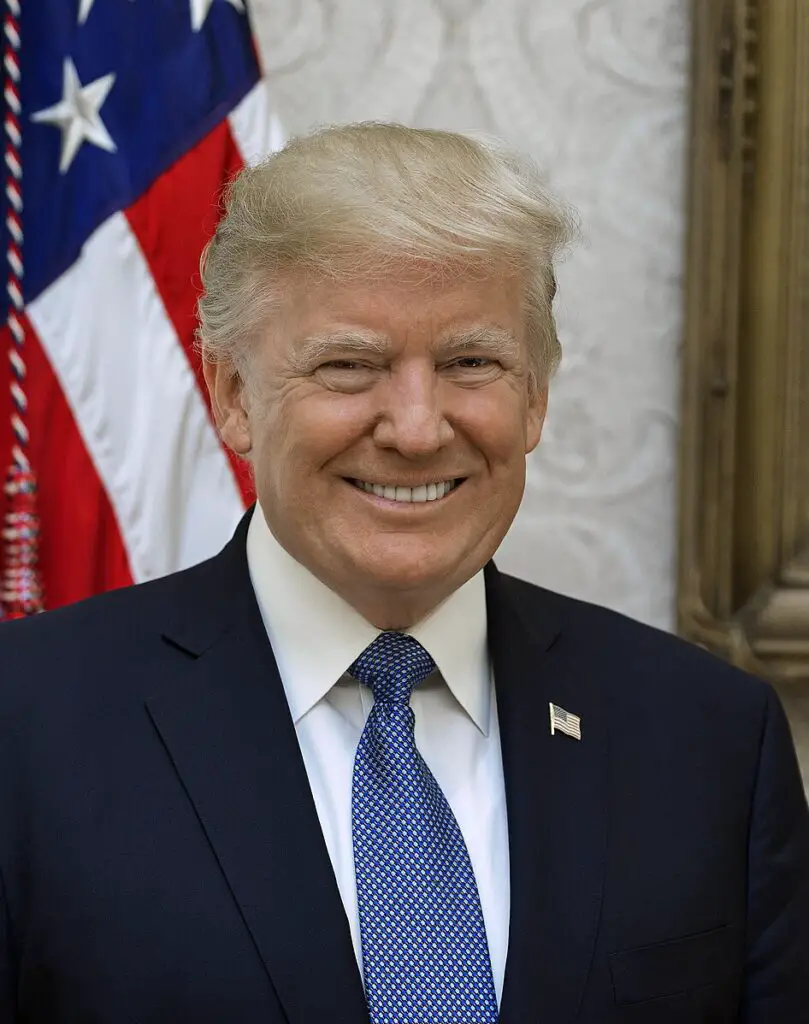Millions of people, both within the United States and around the world, tuned in to witness the historic inauguration of President Donald Trump as he stepped into his second term in office. However, amid the grandeur and formality of the event, one aspect of the ceremony stood out and sparked widespread discussion—the powerful and confronting sermon delivered by Bishop Mariann Budde.
Bishop Budde, known for her outspoken views on social justice and equality, did not hold back as she addressed a range of pressing issues that many found surprising in the context of such a high-profile political event. Her direct words and impassioned plea captured the attention of the audience and quickly became a focal point of post-inauguration conversations.
A Plea for Compassion and Unity

During her 15-minute sermon, Bishop Budde took a moment to address President Trump personally, making a heartfelt appeal to him in front of millions of viewers.
“Let me make one final plea, Mr. President,” she said, her voice filled with urgency. “Millions have placed their trust in you. And as you told the nation yesterday, you have felt the providential hand of a loving God.”
Her words struck a chord as she urged Trump to consider the concerns and fears of many Americans who feel uncertain about their future under his leadership. In a particularly poignant moment, she glanced in Trump’s direction as she spoke of the vulnerable communities that look to him for reassurance.
“There are gay, lesbian, and transgender children in Democratic, Republican, and independent families—some who fear for their lives,” she said, highlighting the anxieties faced by the LGBTQIA+ community regarding the policies of Trump’s administration.
Addressing Controversial Policies

The bishop’s sermon did not shy away from confronting some of the controversial executive orders signed by President Trump in his first hours back in office. Among these were policies aimed at distinguishing biological differences between men and women, reinforcing traditional gender roles, and addressing immigration concerns.
One particularly contentious order she referenced was the declaration of a national emergency at the southern border, which has reignited debates about border security and the treatment of undocumented immigrants. Another order seeks to end birthright citizenship, a policy that has long been a point of contention in American politics.
“The people who pick our crops and clean our office buildings; who labor in poultry farms and meatpacking plants; who wash the dishes after we eat in restaurants and work the night shifts in hospitals—they may not be citizens or have the proper documentation. But the vast majority of immigrants are not criminals. They pay taxes and are good neighbors,” Bishop Budde stated emphatically.
Her words resonated with many who advocate for immigrant rights, but they also sparked criticism from those who support stricter immigration policies.
A History of Criticism Toward Trump
Bishop Budde’s critical stance on President Trump is not new. She has been an outspoken critic of his policies and actions, particularly on matters of social justice and racial equality.
In 2020, when Trump posed for a widely publicized photo holding a Bible outside St. John’s Episcopal Church after law enforcement forcibly dispersed racial justice protesters using chemical agents, Bishop Budde did not hold back in her condemnation.
“Everything he has said and done is to inflame violence… We need moral leadership, and he’s done everything to divide us,” she wrote at the time, reflecting the sentiments of many within the faith community who felt disillusioned by Trump’s leadership.
A Call for Mercy and Understanding
Continuing her sermon, the bishop made an emotional plea for compassion toward immigrant families facing deportation and displacement.
“I ask you to have mercy, Mr. President, on those in our communities whose children fear that their parents will be taken away. And that you help those who are fleeing war zones and persecution in their own lands to find compassion and welcome here,” she urged, referencing biblical teachings on showing kindness to strangers.
She reminded the audience, “Our God teaches us that we are to be merciful to the stranger. For we were all once strangers in this land.”
Her words served as a call for empathy and a challenge to the administration’s approach to immigration, pushing for policies that reflect the values of compassion and inclusion.
Trump’s Response: A Harsh Critique

When asked about his thoughts on the bishop’s sermon, President Trump offered a brief but pointed response.
“I didn’t think it was a good service,” he remarked, dismissing the sermon’s critical tone and message.
His response was not unexpected, given his history of clashing with faith leaders who challenge his policies. Trump’s supporters, however, largely echoed his sentiments, viewing the bishop’s remarks as an unnecessary politicization of a ceremonial event.
Political Reactions and Social Media Buzz
The bishop’s sermon quickly gained traction on social media, drawing mixed reactions from both supporters and critics. Republican U.S. Representative Mike Collins from Georgia took to social media to voice his disapproval, stating, “The person giving this sermon should be added to the deportation list.”
His comment ignited a firestorm of responses, with many calling it inappropriate and reflective of the deep political divisions in the country. Supporters of Bishop Budde praised her courage in speaking truth to power, while critics argued that an inaugural prayer should focus on unity rather than criticism.
What’s Next?
As Trump embarks on his second term, the sermon by Bishop Budde serves as a stark reminder of the challenges that lie ahead. While his supporters remain steadfast in their belief that he will restore America’s greatness, voices like that of the bishop continue to demand accountability and empathy for marginalized communities.
Whether or not Trump will heed such calls remains to be seen, but one thing is certain—his administration will continue to face scrutiny from faith leaders, activists, and citizens who seek to hold him to his promises.
Conclusion
The inauguration of Donald Trump as the 47th president of the United States was a momentous occasion, but it was also marked by controversy and division. Bishop Mariann Budde’s sermon provided a powerful counterpoint to the celebratory tone, offering a sobering reflection on the pressing issues facing the nation.
While her words may not have been well received by the president or his supporters, they resonated with many who hope for a future defined by compassion, inclusion, and unity.
The ongoing dialogue between faith leaders and political figures highlights the complex relationship between religion and governance in America. As the Trump administration moves forward, the voices calling for mercy and justice will undoubtedly continue to make themselves heard.
